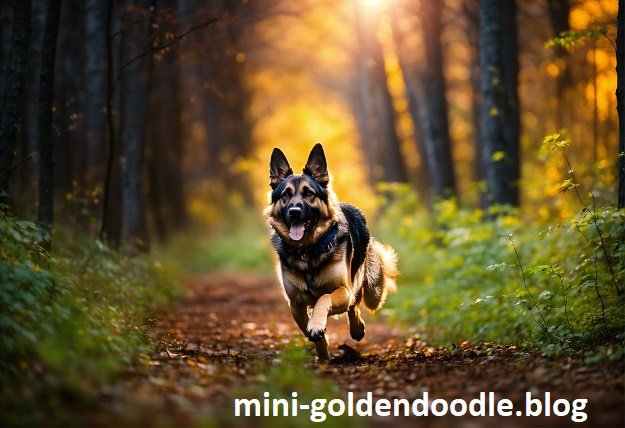Introduction
Puppies of German german shepherd puppy Shepherds are adored for their quick thinking, devotion, and adaptability. Knowing their traits, demands for care, and requirements for training is essential for both your enjoyment and their well-being, whether you’re thinking about getting one or you’ve just welcomed one into your house. Everything you need to know about German Shepherd puppies—from selecting the best one to rearing a happy and healthy companion—will be covered in detail in this extensive book.
History and Origins of the German Shepherd
German Shepherds were mostly developed as herding dogs in Germany in the late 19th century, which is where they originated. The breed’s development is attributed to Captain Max von Stephanitz, who placed an emphasis on qualities including power, intelligence, and obedience. Their sharp senses and steadfast devotion let them succeed over time not only in herding but also in police and military jobs.
Characteristics and Temperament
German Shepherds are distinguished by their aristocratic appearance, which includes upright ears and a powerful, muscular frame. Their brilliance, self-assurance, and fidelity to their families are well-known qualities. They are said to have a brave and protective demeanor, yet they are also kind and compassionate with people they trust.
Choosing a German Shepherd Puppy
Considerations for choosing a German Shepherd puppy include temperament, medical history, and pedigree. Getting to know the puppy’s parents can help you anticipate possible characteristics and health problems. Puppies with these qualities will have a solid basis for training and assimilating into your home. Look for puppies that are alert, interested, and well-socialized.
Essential Supplies for Your German Shepherd Puppy
Getting the materials your German Shepherd puppy will need to suit their demands and be comfortable is part of preparing for their arrival. They include a sturdy food and water bowl, high-quality puppy food that satisfies their nutritional needs, grooming supplies like brushes and nail clippers, a variety of toys to stimulate their mind and provide enrichment, a suitable crate for training and safe confinement, a comfortable bed for rest, a collar and leash for walks, and so on.
Feeding and Nutrition
Your German Shepherd puppy’s growth and general health depend on feeding them a balanced diet. To promote your puppy’s development, get them a puppy food that is made especially for large breeds. A healthy weight can be maintained and overfeeding can be avoided by following a regular feeding plan with portion control.
Exercise Needs and Physical Activity
Puppies of German Shepherds need frequent exercise to maintain their high level of physical and mental stimulation. Along with offering exercise, regular activities like playtime, walks, and interactive games also help to build a stronger bond between you and your dog. As kids become older, progressively increase the intensity of their workout regimen in accordance with their age and level of fitness.
Training Your German Shepherd Puppy
Puppies of German Shepherds must get early and continuous training in order to develop good conduct and obedience. Use positive reinforcement strategies, like as praise and food, to start with simple commands like sit, remain, and come. Equally crucial is socialization, which involves introducing your puppy to a variety of people, animals, and settings in order to boost self-assurance and discourage fear-based behavior. Throughout your puppy’s learning and growth process, you must be patient and consistent.
Health Care and Common Health Issues
Regular veterinary care is necessary to maintain the health of your German Shepherd puppy. This care includes immunizations, dental check-ups, and parasite prevention. Recognize prevalent health conditions that may impact the breed, such as degenerative myelopathy, elbow dysplasia, and hip dysplasia. Keep a close eye on their development and behavior, and contact a veterinarian right once if you observe any changes in their eating, level of energy, or mobility.
Grooming Tips for German Shepherd Puppies
German Shepherds shed all year round, even with their short coats, so frequent brushing helps reduce loose fur and preserve skin health. To maintain their coat clean and clear of dirt, bathe them as needed and use an appropriate brush to remove dead hair and distribute natural oils. Regularly trim their nails to avoid discomfort and overgrowth, and examine their ears for debris accumulation or indications of infection.
Socialization and Behavior
In order for German Shepherd puppies to grow up to be well-adjusted adults, early socialization is essential. In a regulated and constructive way, expose them to varied settings, people of different ages and appearances, and other animals. To help kids develop acceptable social skills and boost their confidence, encourage calm behavior and promote positive interactions.
Conclusion
A German Shepherd puppy may provide a fulfilling life full of adventure, love, and company. You can make sure your puppy develops into a well-mannered adult dog by being aware of their requirements, giving them the care they require, and making training and socialization investments. Recall that you will always have a lifelong attachment with your German Shepherd puppy.
FAQ
Are German Shepherd puppies good with children?
If raised and taught from an early age, German Shepherds are wonderful family pets. Although they are usually kind and protective toward kids, watching over them is advised.
How much exercise does a German Shepherd puppy need?
Puppies of German Shepherds require 30 to 60 minutes of activity every day, with the amount of time needed to increase with age. It’s also crucial to provide mental stimulation through interactive play and training.

